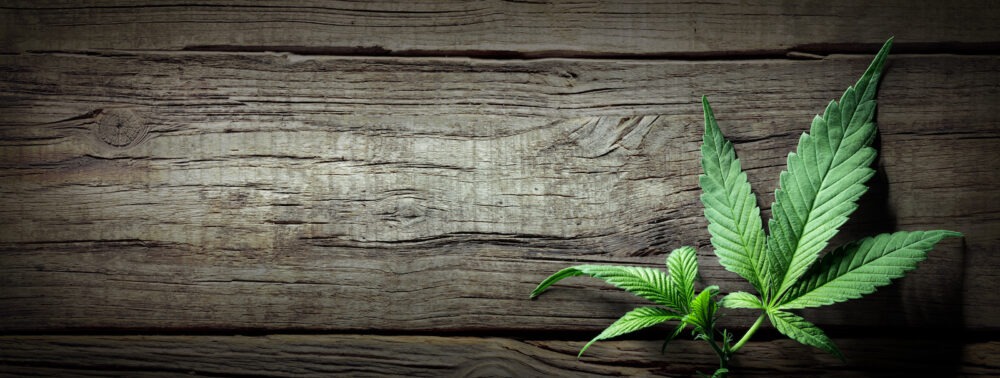Table of Contents
Addiction is no joke. Regardless of what you are addicted to, being a victim of addiction is a severe negative aspect of your life. Addictions are controlling, all-encompassing, and can come in any shape or form.
The most common types of addiction are addictions to drugs, nicotine, or alcohol, but many other addictions can occur. The key is understanding different addictions because different triggers cause different addictions.
Treating a variety of addictions means understanding the differences between process and substance addictions. Knowing the difference is crucial in creating an effective treatment plan that will last the duration of somebody’s life.
Substance addiction is the most commonly thought of addiction when somebody brings up the topic. Substance addiction is an addiction to a substance, usually one that alters the state of mind or the being of the user. Examples of substance addiction are drugs such as marijuana, heroin, opiates, anti-anxiety meds, ADHD medications, nicotine, alcohol, and other substances that you ingest into your body to achieve an altered state of intoxication.
A process addiction is different. A process addiction does not require the person to be physically consuming something. Instead, a process addiction is an addiction to something intangible, not physical.
Process addictions are generally not taken as seriously as substance addictions because people do not see them as severe. Some common process addictions are gambling addictions, pornography addictions, eating disorders, shopping addictions, and other types of indulgences.
Luckily, in recent years process addictions have begun to get the attention they deserve. Process addictions may seem harmless, but they can severely impact a person’s life, livelihood, and social world.
Both types of addictions can cause legal or financial issues, issues within a family, damage to physical or emotional well-being, and cause a general strain on a person’s life. That is why it is so important to identify addictions and treat them with proper care.
What Is Process Addiction?
First, let’s talk more about process addictions. This type of addiction, as stated earlier, is an addiction to the process of doing something. For example, a sex addict is addicted to having sex.
Being addicted to a process is just as damaging as being addicted to a substance. We go through many processes that we do not think to have the possibility of trapping us in addiction. Yet, when you look closely at the things we do daily, many of them can be highly addictive if not monitored carefully.
Eating disorders are a great example of a process addiction. What starts as wanting to lose a few pounds or gain a few pounds can quickly spiral out of control and become a compulsion and an addiction. Unfortunately, people do not realize that eating disorders control every waking moment of your life.
A person suffering from anorexia is addicted to starving themselves. Somebody who has a binge eating disorder is addicted to eating food. Somebody with bulimia is addicted to consuming and then purging calories. While the person may not like throwing up or starving themselves, the process has trapped them and become an addiction. At this point, this person is no longer dieting but killing himself.
Sometimes, it can be hard to determine what a process addiction is and how to differentiate it from something like a habit or routine. That is why it is important to keep paying attention to different habits in your life.
Paying attention to how often you gamble to make sure you don’t develop an addiction to gambling is just as important as paying attention to how often you drink alcohol.
Process Addiction vs. Substance Addiction
Substance addiction is an addiction to a physical substance that typically alters the user’s state of mind. Substance addiction is generally considered the more common of the two types of addiction, but that is not necessarily true.
Substance addictions often get more attention from media and doctors because they are easy to identify and diagnose. For example, it is easy to tell that a person is using crystal meth and addicted to it at a doctor’s visit. On the other hand, it is much more difficult to diagnose a shopping addiction just by looking at someone.
Because of this, substance addictions are diagnosed more frequently and have more awareness in the public eye.
Some types of substance addictions are as follows:
- Addictions to prescription drugs
- Street or illegal drug addiction
- Alcohol
- Nicotine
These types of addictions severely impact the day-to-day life of the person with an addiction. This makes them easy for family and friends to identify. This is why you will see more people at an intervention for drug use than you will add an intervention for pornography addiction.
Substance addictions are generally more public. This is because they include more people outside the users’ personal lives. In addition, they have ripple effects that generally harm other people in the users’ circle and thus are easier to identify and find out.
Can Multiple Types Of Addictions Coexist?
What are the main issues with both process addictions and substance addictions is that they can coexist at the same time in one person. This is when a person can simultaneously have both substance addiction and process addiction. An example could be someone who has a gambling addiction and uses ADHD medication to stay more focused at the casinos.
Although all of these examples are vague, they are a way to understand how one addiction is often closely related to another addiction. People prone to addiction in any sense need to be wary of accidentally creating a new addiction through their first.
The effects could be catastrophic when both substance and process addictions are simultaneously in one person’s life. Often that person will feel like their life is spiraling out of control, and they will try to do whatever they can to gain control of their life.
In trying to gain control of their life, they may accidentally worsen their addictions or create new ones. People at risk of developing addictions or having a history of addiction need to be incredibly careful of how and techniques they cope with life. Healthy coping mechanisms are essential to avoid creating addictions or relapsing.
How to Get Help for An Addiction
Diagnosing yourself with an addiction is a lot harder than it sounds. Addictions are incredibly severe and have lasting repercussions throughout a person’s life. Even when you are clean or recovered from your addiction, you still must avoid those triggers for your whole life at risk of relapsing.
That is why it is best to get a professional opinion if you think you have an addiction. Although it may not be easy to go to your doctor and tell them that you think you may have an addiction, they are there to help and support you. The same goes for your friends and family. So if you believe you are struggling with either a process or substance addiction, get in touch with close friends and family and ask them to help support you through this time.
One of the easiest ways to find out if you have an addiction is to ask the people around you. Often, they will notice your addiction before you do. If you or the people around you think you have an addiction, you should seek treatment.
Many people feel like because they are addicts, they do not deserve help. Unfortunately, our society has created a stigma around addiction that makes people who need help feel like they do not deserve it. That is simply not true. Anyone who needs help deserves to get help. It doesn’t matter who you are or what you have been through. Everyone is a human being and deserves to be treated as such.
When you have an addiction, your brain can tell you that you are not worth it. Try to avoid listening to those thoughts. Instead, reach out to family and friends and have them help you avoid triggers and support you in finding a treatment plan that is right for you.
It is imperative to your health and well-being that you reach out to a premier rehab facility immediately to get the help you need and deserve. Our staff and faculty at Infinite Recovery are here to support you every step of your recovery journey. We are professionals in the field, and we know how hard it is to realize you have an addiction, whether a substance or process addiction. Please reach out today so you can begin to live your life addiction free.
Sources:
Infinite Recovery has strict sourcing guidelines and relies on peer-reviewed studies, academic research institutions, and medical associations for our references. We avoid using tertiary references as our sources. You can learn more about how we source our references by reading our editorial guidelines and medical review policy.
- Johns Hopkins Medicine. Substance Abuse/Chemical Dependency. Retrieved October 21, 2022. https://www.hopkinsmedicine.org/health/conditions-and-diseases/substance-abuse-chemical-dependency
- National Library of Medicine. Behavioral Addiction versus Substance Addiction: Correspondence of Psychiatric and Psychological Views. Published April 3, 2012. Retrieved October 21, 2022. https://www.ncbi.nlm.nih.gov/pmc/articles/PMC3354400/
- Raypole C. Types of Addiction and How They’re Treated. Healthline. Published February 27, 2020. Accessed July 9, 2022. https://www.healthline.com/health/types-of-addiction
















